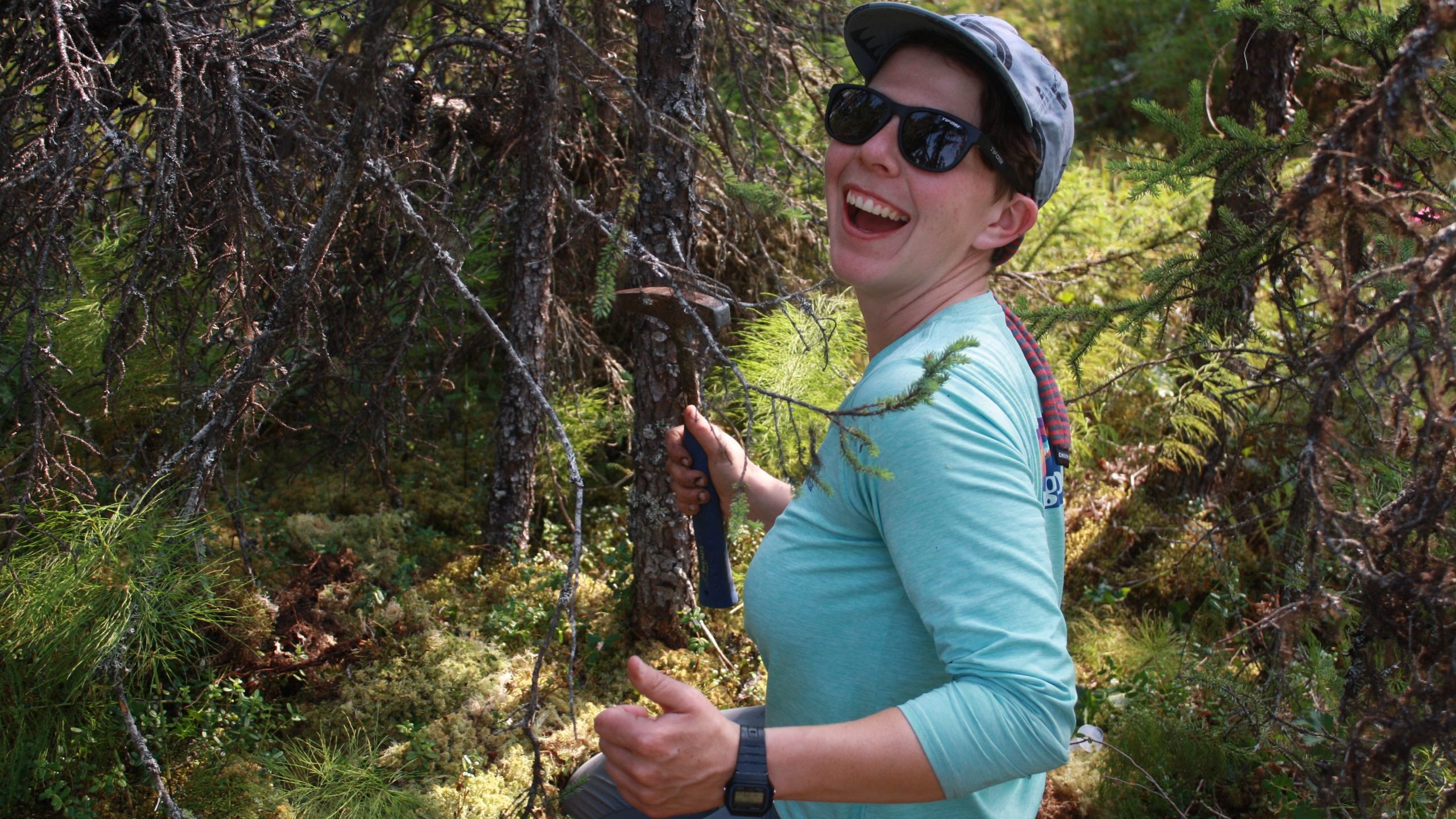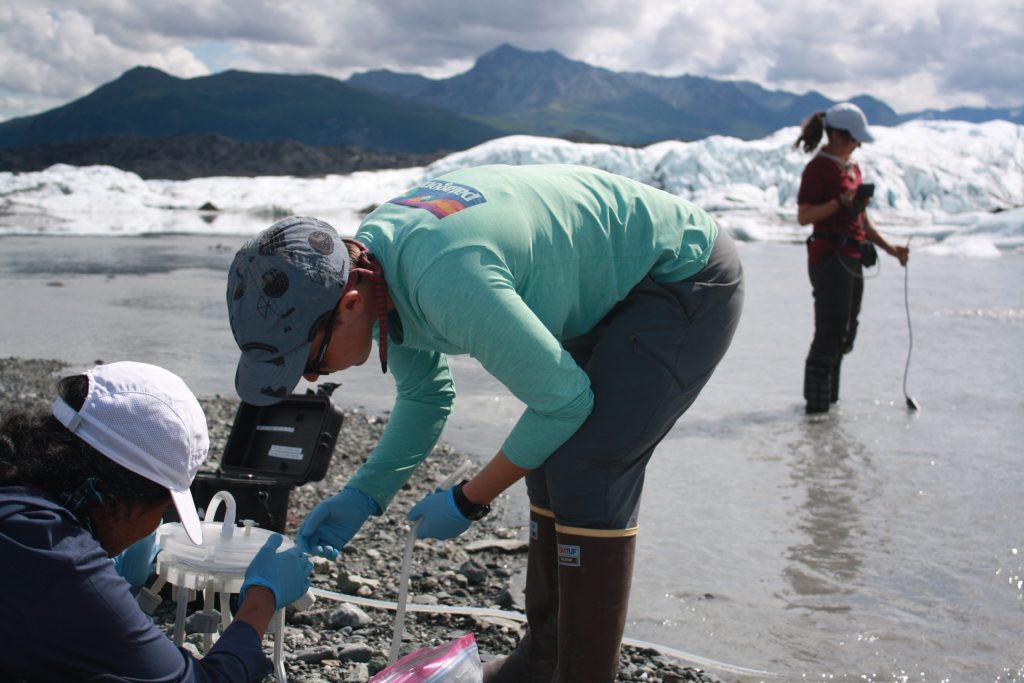Researcher Spotlight – Rachel Sussman

2019-20 Global Change Fellow
PhD Student, Department of Marine, Earth, and Atmospheric Sciences
Advisor: Dr. Carli Arendt
Every year the Southeast Climate Adaptation Science Center funds a multi-disciplinary cohort of Global Change Fellows representing colleges across NC State University. Here are some highlights about 2019-20 Fellow, Rachel Sussman, and the applied research she’s conducting.
About You
What do you study?
I am a master’s student in chemical oceanography. I research the transport of nutrients from melting glaciers and thawing permafrost to coastal systems in Alaska.
What (or who) influenced you to go into this field of study?
My interest in the cryosphere stems from my time as a kayak guide in Alaska, where I would lead tour groups to calving glaciers and inform them of the natural history of the region. Much of my narrative centered on the effects of climate change at northern latitude. Observing the rapidly changing Alaskan landscape and speaking with tourists about the effects of warming temperatures on glaciers inspired me to expand my own understanding of the phenomena I witnessed.
What do you think is the most pressing issue related to global change?
I think that the most pressing issue related to global change will be the interplay between various climate forcings. We have a limited understanding of the effects of these combined forcings, making it difficult to accurately model future change.
What is your dream job?
My dream is being a research scientist studying Arctic climate change (in other words, I’m on my way!).
About Your Research

What is the most important thing that you’ve learned?
My research is still in the preliminary analysis stage. Last summer, I spent several weeks in southcentral Alaska, collecting water samples along a transect that spanned from the terminus of the Matanuska Glacier, through permafrost regions, and into the Cook Inlet off the coast of the Kenai Peninsula. My analysis will characterize the nutrients sourced from glaciers and permafrost and track their bioavailability as they travel into coastal waters. The nutrients from these sources sustain the socioeconomically crucial fishing industry outside of Anchorage, AK. Changes to the nutrient regime could have potentially devastating effects as these sources are depleted. I will be returning to Alaska this summer to continue and broaden my field work.
Who will benefit from your research?
My research is beneficial in two main ways. Firstly, this region of Alaska has been neglected by researchers in the past. Increasing the understanding of the confluence of glaciers, permafrost, adjacent urban populations, and sensitive coastal ecosystems in southcentral Alaska will help inform expected impacts in similar areas. Secondly, the results of this research will help Alaskans forecast future changes and adapt accordingly.
How can your research be used to inform management decisions?
Fishing is one of the most lucrative industries in Alaska. The Cook Inlet is home to some of the best salmon and halibut fishing in the world. It sustains thousands of Alaskan livelihoods and is culturally important to Native Alaskan communities. The richness of this ecosystem is derived from nutrient influx from upstream glaciers and permafrost. Changes in these fluxes and their eventual depletion will have resounding effects on the fishing industry. Managers need to be aware of how these environments will change in order to implement effective adaptations.
How would you describe your research to a 3rd grader?
I research how climate change in Alaska will impact the downstream ecosystems and global climate.
About Your Global Change Fellow Experience
How do you expect the SE CASC Global Change Fellows Program to impact you and your work?
The SE CASC Global Change Fellows Program has given me a framework for productively and respectfully bringing stakeholders into my research and vice versa. My understanding of the nuanced process of aligning research and management interests has grown as a result of this program. I expect this appreciation for collaboration to guide me throughout my scientific career.
What has been the most rewarding part of being a SE CASC Global Change Fellow?
My favorite part has been meeting scientists and land managers who do on-the-ground climate management and adaptation. The lessons they have communicated will inform my research and future interactions with stakeholders.
What advice would you give to a student that is interested in getting involved in your field?
Arctic climate science is not something you have to watch in BBC documentaries or read about in doomsday news articles. There is a lot of research that remains to be conducted and it is attainable for pretty much anybody who is interested and willing to explore outside of their comfort zones. It can be physically and emotionally trying, but it is rewarding research for those who are committed.
